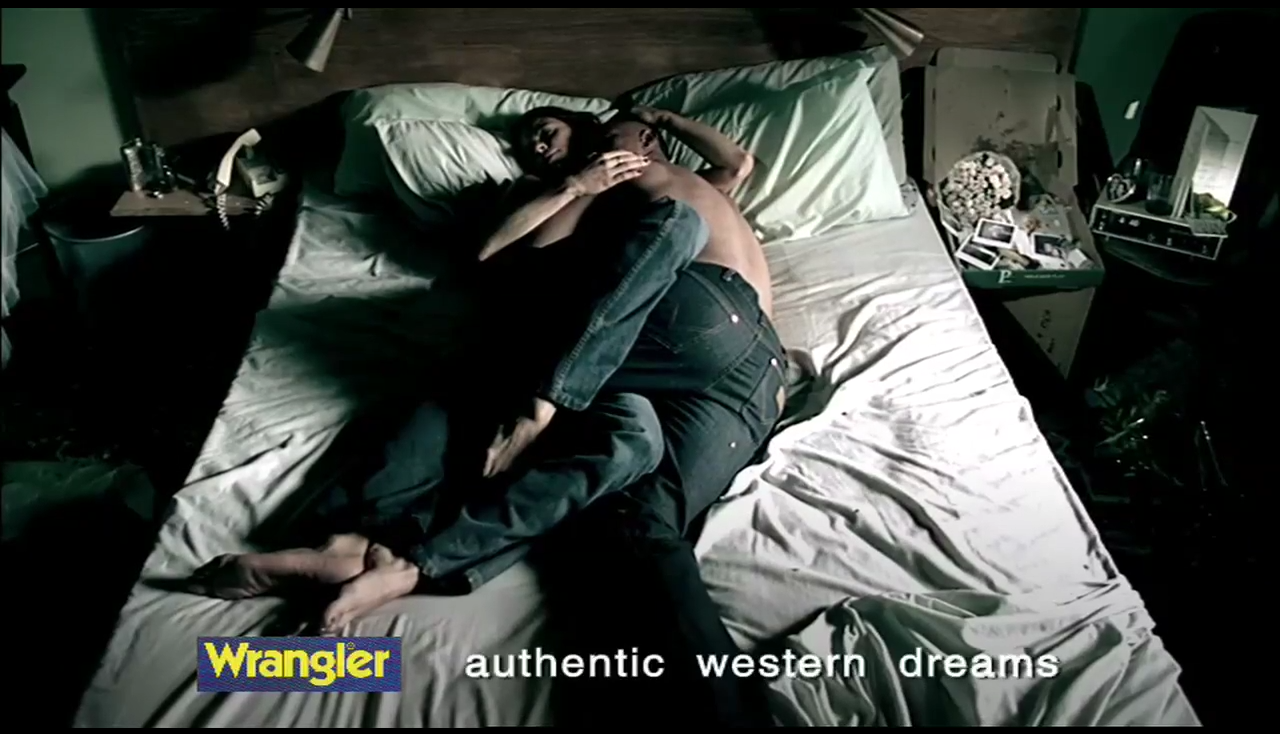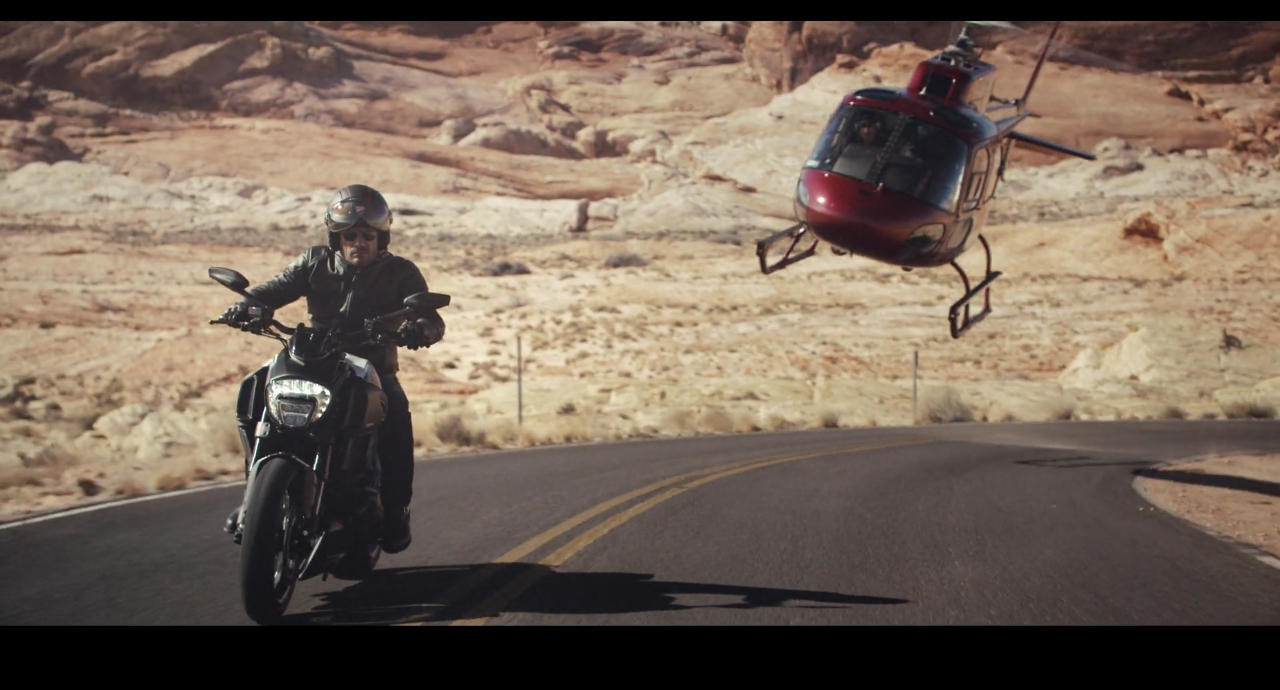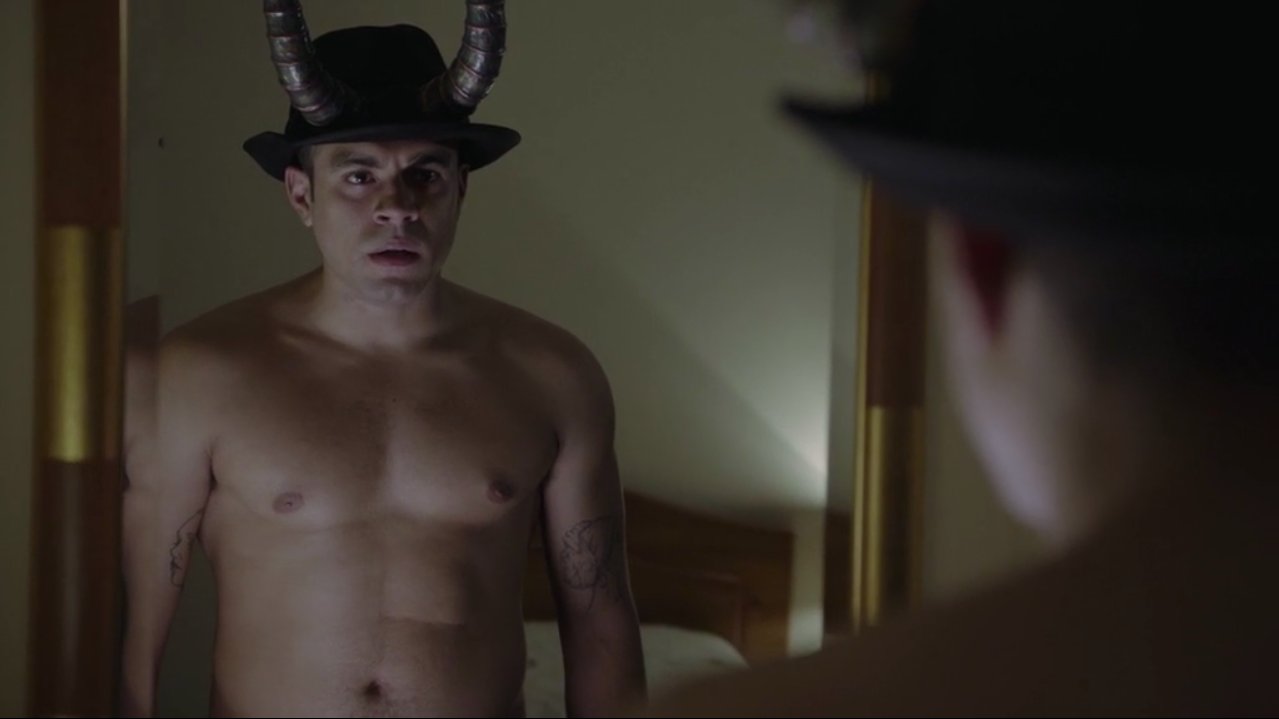I recently completed an ad film for MRF Mogrip motorcycle tyres in India.
Creative Agency - Dentsu; Film Production - 30 Seconds of Fame; Director Rob Kaplan; Photography
The job was highly ambitious, shooting motorbike action in precarious mountain locations in Manali, India.
But it all began for me in factual television shooting and directing ob-docs and earlier days of Cutting Edge and Modern Times. It was 14 years ago, I'd shot / directed several docu-soaps - Passport To The Sun (BBC), Bournemouth Dreamtown (itv) and thought, where was it all heading? I was driven cinematically, inspired by style as well as story and a lot of these jobs were starting to feel 'painting by numbers' and repetitive . Inspired by winning a short film competition sponsored by Wranglers, I decided advertising would be the perfect medium to realise my visual ideas and talents. So I chatted to a bunch of ad agencies and everyone said I needed something eye-catching to show off. I staked my savings on a test commercial - a spec ad I myself wrote - and encouraged some support from the folks at Wranglers. The ad, 'Western Dreams', won the coveted Shots New Director Award in Cannes and gained me top representation. But It's never plain sailing and one newcomer award didn't change my world. Sure, I went on to direct some challenging and exciting ad work but it was important not to drift too far the broadcast shore and lose sight of what fantastic opportunities it could still offer and why I was attracted to it in the first place. To tell great human stories.

Shot from Rob's Wrangler Ad
The challenge is how to maintain a foothold in two camps. Two very separate industries requiring different skill sets and mentalities. Where each holds preconceptions of the other. Advertising celebrates the pithy idea, obsessive levels of technical and aesthetic excellence. Where the director's treatment has become a bamboozling 20 page image driven, glossy sales brochure promising Hollywood in 30 seconds. Agencies and ad producers are respectful of the earnest, toiling TV programme maker but slightly suspicious of the level of individuality and distinctiveness of what they do. How do you sell tv work to brands?
Meanwhile, the common rebuke from broadcast TV execs is great pictures but can you tell a story, can you craft an edit over one minute ?
However, they are never mutually exclusive and the lines between broadcast TV and online branded content were becoming increasingly blurred. If you have Jamie Oliver on your TV reel, you might be in the hat for the Jamie Oliver TVC. Similarly, Top Gear directors have all made the transition to car ad/ brand work. But ad land can make crude assumptions : they more often than not want to see the job already on your reel. I was once asked by an ad agency if I had any 'wrecking ball' on my reel for a Ford Transit job that was to show just that. Certainly the breadth of experience and credits from both industries are something to shout about to each and depending on the discerning TV Executive, can certainly make a positive impression as a factor in hiring you.
I was able to crossover into TV shows like Top Gear, Chop Shop London Garage and Bizarre Animal ER - character based but requiring strong imagery, quirky ideas and creative storytelling.
Utilising those skills I'd developed in ads - presentation, technical excellence, consideration of style, working with talent, on set management, drama-documentary appealed as a natural progression in TV land. This is particularly the case with US broadcasters which run more like ad agencies serving their client, the advertisers. I managed to gain credits directing shows like Banged Up Abroad (Nat Geo) and Obsession: Dark Desires (Discovery ID).


Obsession: Dark Desires (Discovery ID)
However, the trick is to never lose a grasp on the realities of television. Budgets always tight, ideas ambitious and the desire to make movies on documentary budgets means often shooting thirty minutes of drama in a few days. In ads, sometimes it's three days for 30 seconds. But coming out of the hustling, run 'n gun school of Ob-docs in TV is always a great foundation because it's taught you to think on your feet, and know the vital material that needs to be shot to make the story work.
Now, nigh on 20 years since starting out as a TV researcher, the challenge is how to progress in both the TV and ad land camps. To stay relevant in ads, it's always the next job, to be there to close that deal and make a splash. Momentum is everything. Yet TV offers greater life sustenance - intellectually, often educationally, and in terms of story craft. It makes you a better story teller on film. And now with the advent of Netflix, Amazon et al, the landscape is blowing wide open with huge new possibilities for ambitious, cinematic, digitally enhanced unscripted formats: a great space to move into.
So it’s a case of juggling the meaty, stable, more amenable TV contract versus the hot to trot 'in 'n out' ad film whirlwind that has the hippest and brightest talent worldwide banging down the door at the scent of the latest ad script being touted. Hmm.

